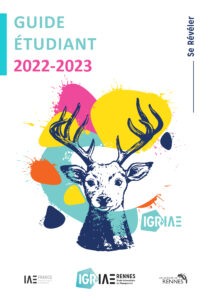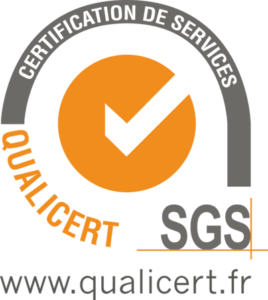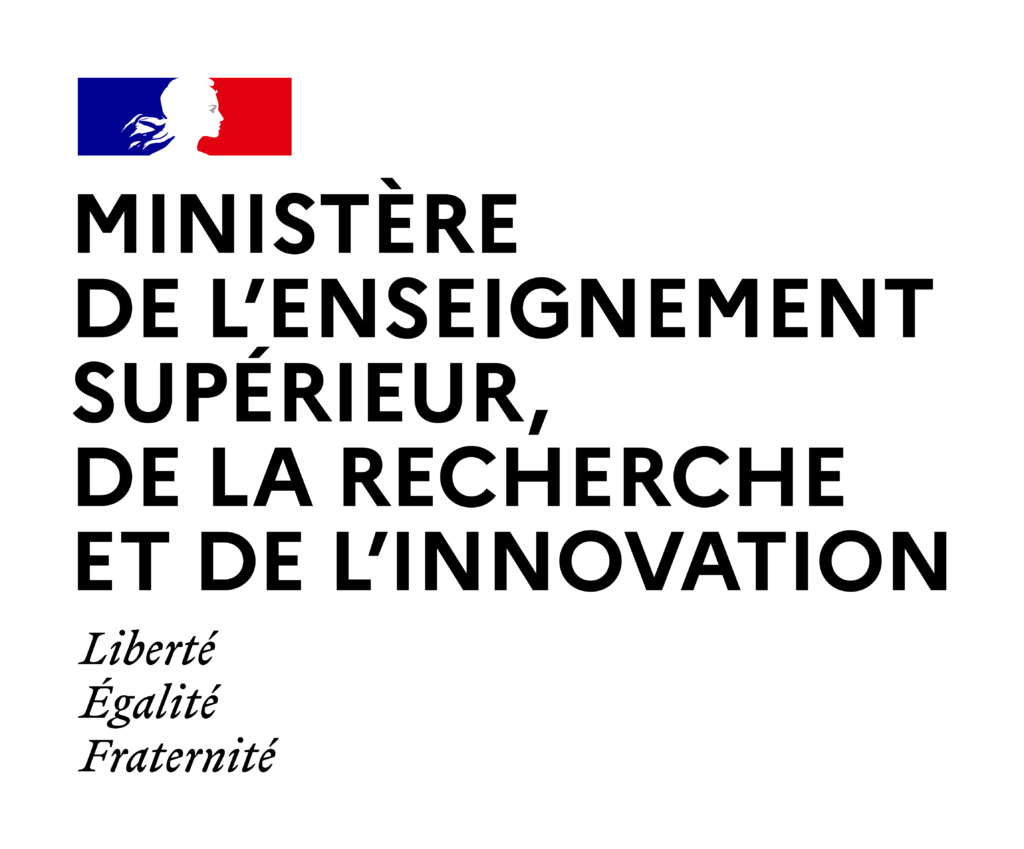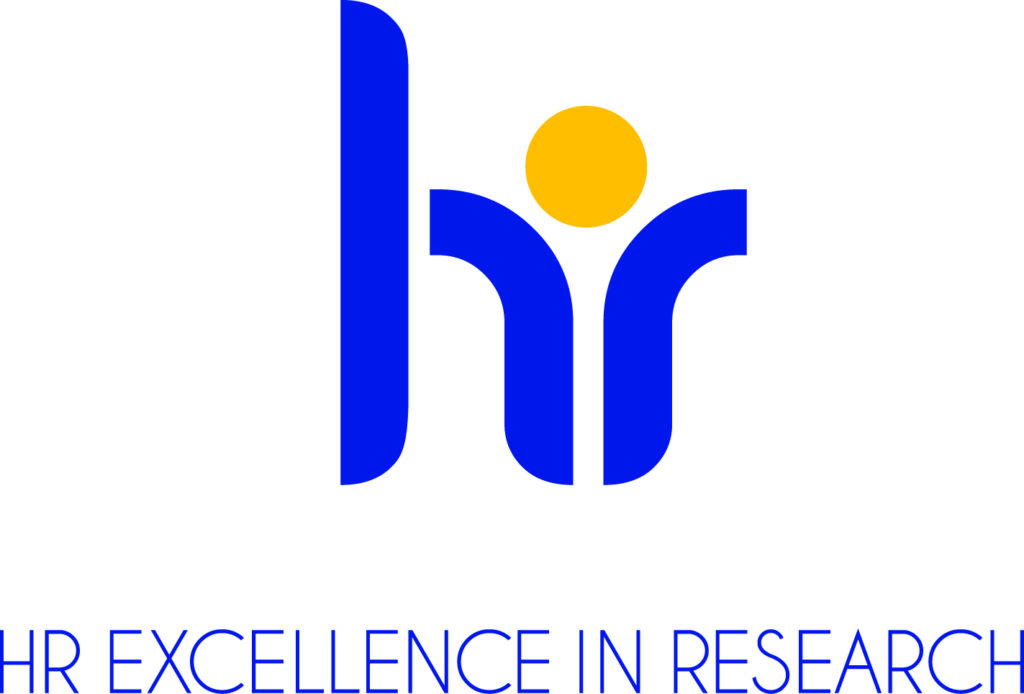Home / Exchange Students’ FAQ
Exchange Students' FAQ
You will find below answers to some of the frequently asked questions we hear from candidates. Of course, the exchange students' coordinators will answer your other questions, and much more!

FAQ
How do I become an exchange student at IGR-IAE Rennes?
You have to be nominated by your home university. Get in touch with the international office of your university in order to have information on the student mobility procedure. Once you are nominated at IGR-IAE Rennes, you will receive an email with further instructions.
When are the application deadlines?
For the fall semester or whole academic year: May 15 (nominations accepted until May 10). For the spring semester: November 1 (nominations accepted until October 15).
How should I apply?
The exchange student coordinator contacts all the students nominated by their home universities in order to share the link to the dedicated application platform, Mobility Online.
I am expecting to receive my new passport, should I still fill in my application form?
Yes, please upload a photocopy of your current passport and email us your new passport details as soon as you receive it.
Will I have to pay tuition fees?
No, exchange students are exempt from tuition fees. There is a specific situation for some double degree students, who will be informed in detail of the financial conditions of the double degree studies.
Do I need to speak French?
Students taking courses in English are not required to have any French language knowledge. However, it is very useful to know at least some basic French in order to manage in everyday life.
What are the language requirements?
Make sure that you have at least a B2 level in:
English, both written and oral, to take part in the courses that are taught in English;
French , both written and oral, to take part in the courses that are taught in French.
Does IGR-IAE Rennes organize an Orientation Program?
An orientation day is organized at the beginning of each semester. The exchange student coordinator will share important information (schedules, classes, grading system…) and guidelines for the registration at the Student Affairs Office. This is also a good opportunity to get to know your major contacts at IGR-IAE Rennes. If you arrive later, please contact the International Office as soon as you arrive in Rennes in order to get as much information as possible and start your registration at the Student Affairs Office.
Other events are organized by the University of Rennes and by other organizations in Rennes in order to greet newcomers in general, and international students in particular.
Do you have a buddy?
The international office of IGR-IAE Rennes organizes a buddy system: French IGR-IAE Rennes students will be in touch with you to help you.
What should I do if I miss my train/plane?
You should inform the International Center about the delay, as well as your appointed buddy.
How much should I expect to budget for each month?
It depends on your habits. When issuing visas, the French government demands evidence that international students have 615€/month. We advise student to budget more than that to fully enjoy their stay in France. Full information on budget issues is given on our website: https://www.igr.univ-rennes.fr/en/finance-your-studies/.
Can I apply for any financial help?
Students may apply for mobility grants in their home university.
Students may also benefit from the French accommodation allowance system. Applications should be made on www.caf.fr.
Do I have to fill in an enrollment form?
The exchange student coordinator will use the information in the Mobility Online platform, and documents updated, so that the Student Affairs Office can prepare your student card. Upon arrival you will only be required to submit a copy of your student card for the current year
How can I check that you have received my application and that it is complete?
Applications are received on the Mobility Online tool. The incoming student coordinator checks the tool daily and will be in touch with you in order to let you know if your application is complete and accepted, or if anything is missing.
When are the application deadlines?
For the Fall semester or whole academic year: June 1. For the spring semester: November 1 (only students nominated by their home universities are eligible to apply).
What is the official ERASMUS code of IGR-IAE Rennes?
There is one code for whole University of Rennes 1: F RENNES01
How can I register for the courses?
Before your arrival in Rennes, the exchange student coordinator will send you an online form where you can choose from the list of courses open to exchange students. Check the specific requirements for each course you choose and make sure that you are eligible for all courses that you select. Then, submit your course list to the exchange student coordinator, so that she can register you in the courses.
Where can I check the course details and specific requirements?
You can check this page of our website: https://www.igr.univ-rennes.fr/en/course-offer/.
When will I receive a student card?
In September, you will meet the exchange student coordinator in order to check that all the information and supporting documents are complete. After a couple of days’ processing, your student card will be handed over to you.
What are the teaching methods?
You will realize that teaching methods are different from your home university: lectures, case studies, simulations, debates. The teachers expect active class participation, teamwork and proper behavior. Flawless attendance is mandatory. If you cannot attend a class, please inform the exchange student coordinator immediately.
Which courses can I take?
Due to potential schedule and exam overlaps, exchange students are required to choose courses in only one program (either in French or in English). Moreover, it is not allowed to mix courses in the Program in English for Exchange students and French-taught programs. .
How can I register for the courses?
Before your arrival in Rennes, you will be in touch with the exchange student coordinator, who will send you an form where you can choose from the list of courses open to exchange students. Check the specific requirements for each course you choose and make sure that you are eligible for all courses that you select. Then, send your course list to the exchange student coordinator, so that she can register you in the courses.
Who will sign my Learning Agreement and when?
Make sure your Learning Agreement is signed by the coordinators at your home university and remember to bring it with you to IGR-IAE Rennes.
The exchange student coordinator will be your contact for the verification of your Learning Agreement, which will be signed by the Vice Dean for international affairs.
Eventually your Learning Agreement will be uploaded on your Mobility Online account.
Can I change or withdraw from my courses?
Yes, but only before the beginning of the course. You have to request permission from the exchange student Coordinator.
Can I take courses at the other faculties of the Université de Rennes?
When cooperation agreements are made by subject area, department or faculty, learning agreements can be made within different faculties as long as timetables are compatible. Therefore, you may be allowed to take course at the Faculty of Economics and the Law Faculty, which are both within walking distance from IGR-IAE Rennes.
When is the exam period?
There is an exam period at the end of each semester. During that week you will have written exams for some of the courses, while other will be examined right at the end of the course. Other grades (continuous assessment) will be included in your final grade.
Some programs operate only on a “continuous assessment” basis.
Can I learn French while studying at IGR-IAE Rennes?
Foreign students participating in an exchange program can benefit of 44 hours of French courses (2 classes per week).
ONE semester is free of charge (fall or spring semester),
150€ for a second semester.
These courses are given at CIREFE (Centre International Rennais d’Études de Français pour Étrangers) on the Université de Rennes 2 – Villejean campus. Registration should be done before your arrival in Rennes
How long does a class last?
A class generally lasts 3 hours with a 15-minute break.
How many hours will I have in a week?
It will depend on your course selection.
Where can I find my schedule/class timetable?
You can find your schedule on your digital workspace, commonly called the ENT.
How many students are there in a class?
It may vary from 10 to 35.
What are the semester dates?
Fall semester is from September to December; spring semester from January to May. These are very rough dates. A more specific calendar is communicated to students at the beginning of their stay.
When will I receive my grade transcript?
It is sent to you by email and to your home university by post approximately six weeks after the end of semester.
Will I study with French students or is there a special group for international students?
If you choose to attend French classes, you will be immersed in groups of French degree-seeking students. If you choose to attend classes in English, some of your classes will be only with international exchange students, while in others you will be mixed with the Bachelor’s in International Business or Master 1.
Where can I get support and advice for studying with disabilities?
Please contact the exchange student coordinator. She will get in touch with the adequate person at the Université de Rennes.
What is the grading system?
At IGR-IAE Rennes, as more generally in France, we use a 0-20 scale to report all the grades. The grading scales goes from the bottom grade, 0 points (extremely disastrous performances or “no show” to the top grade, 19-20 points for an outstanding performance (rarely awarded). 10 is the passing mark (10-11 C, 12-14 B, 15-16 A, 17-20 A+). Grades from 0 to 9,9 will fail and lead to re-sit exams (second sessions). See here for an illustration of this explanation
Do I have to do an internship during my exchange?
Exchange students are not expected to do internships. However, they are allowed to do one. In that case they will be expected to establish an internship agreement between themselves, the hosting company and the University. Ample explanations are available at the Internship Office.
Can I get discounts with my student card?
Yes, student status in France can secure discounts (cafeteria, cinema, museum etc.).
How much do textbooks cost?
They are rarely used. Most of the materials are Internet-based or hand-outs in class.
Do I have a university email address at IGR-IAE Rennes?
Yes, all students receive an email account upon enrolment.
We advise you to check that mailbox daily as teachers, staff and students’ associations will send you all information (schedules, exams, teaching material…) on this address.
When is the campus open?
IGR-IAE Rennes campus is open from 7h15 to 21h00.
What services are provided on campus?
Printing machines, computers, WiFi (which you can access with your student card), study rooms, a cafeteria. The downtown campus library is a 10-minute walk from IGR-IAE Rennes.
Will I have to bring my laptop?
It is strongly recommended to bring your own laptop.
If I need to go back to my country for a few days during the semester what I am supposed to do?
Get in touch immediately with the exchange student coordinator in order to provide official documentation to justify your absence. Also inform your professors and friends, so that you can get your teaching material and other essential information when you return.
Can I work part-time while I am studying?
Exchange students form the EU can work in France.
Other international students are allowed to work only part time.
However, do not underestimate your course load and workload and don’t forget that your classes need preparation and full attendance. Also a good level of French is essential to get any kind of job.
When are the French public holidays?
All Saints Day 1st November,
Armistice Day 11th November,
Christmas Day 25th December,
New Year’s Day 1st January,
Easter Monday,
Labour Day 1st May,
WWII Victory Day 8th May,
Thursday of Ascension in May
Pentecost in June.
What to do if I have a problem?
If you have any problem, you can contact exchange student coordinator (1st floor, room 123). You can ask to meet the professor in charge of the geographical zone where you come from (you will meet them at some point in September) or the Director of International Affairs.
Do I need a visa to study in France?
European students do not need to meet this requirement. If you are unsure whether or not you require a visa (for example if you were born outside Europe and reside in Europe), please consult the French Ministry of Foreign Affairs’ website.
If your country is part of the Etudes en France system, you will have to go through a simplified procedure. The exchange student coordinator will upload a list of exchange students, and will communicate all incoming students’ information so that they can continue their Etudes en France and visa procedures accordingly.
When should I apply for a visa?
You should start the procedure right after receiving an admission letter or at least 3 months before traveling.
Be careful of the specific procedure is your country is part of the Etudes en France (see above)
Is a tourist visa sufficient for one semester of studies?
No, you need to apply for a student visa, or long-stay visa. In any case, you need to get advice from the French embassy or consulate in your country.
What documents do I need to apply for the visa?
You will get an updated list of documents on the French embassy (or consulate) in your country. IGR-IAE Rennes will provide an acceptance letter and proof of accommodation letter (only if you apply for accommodation in a CROUS-run residence).
Which address should I communicate when applying for visa if I don’t know yet my permanent address in France?
You can exceptionally give the address of the IGR-IAE Rennes, 11 rue Jean Macé 35700 RENNES. Remember though that you will not be lodged there. This is not a housing invitation.
What is the OFII procedure?
You will be issued a long-stay visa, equivalent to a residence permit, which will be subject to further formalities on your arrival in France.
Upon your arrival in France, You have to validate your visa on the government online platform : https://administration-etrangers-en-france.interieur.gouv.fr/particuliers/#/vls-ts/demarches/etape/numero-visa
You will be expected to pay a 60 euros tax stamp, that you can buy online on the official website.
Once you have received the visa validation confirmation by email, your visa will be your residence permit until the end date indicated on the visa.
Can I obtain a visa at the French border?
No, this is not possible.
Several months before departure, you have to contact Campus France or relevant French Embassy or Consulate in your country of residence.
I am expecting to receive my new passport, should I still fill in my application form?
Yes, please upload a photocopy of your current passport and email us your new passport details as soon as you receive it.
How much money should I bring when I travel to Rennes?
It isn’t advisable to bring large sums of cash but you will need some (preferably in small bills) before you open a bank account or find an ATM that is linked to your bank.
What should I bring from home?
• national identity card for UE students or passport with a visa (if required) and its copies
• European Health Insurance Card and its copy (if applicable)
• letter of admission from IGR-IAE Rennes
• current student card from your home university and its copy.
• at least 2 passport-sized photos
• original birth certificate, international or translated into French or English, and its copy (if you want to apply for the Housing Benefit)
• your medical prescriptions
Can I travel outside France during my exchange?
Normally, you can travel inside the Schengen Area. If you hold a visa, you will have to wait until validation of your visa (see OFII procedure above) to be able to travel freely. For travels outside the Schengen Area (Great Britain for instance), you will need to apply for a visa.
What is “sécurite sociale”?
The “sécurité sociale” is the French national social system. It ensures basic social reimbursements for everyone in France under this system. As soon as you have received your IGR-IAE Rennes student card, you can register on the Sécurité Sociale website:
Do I have to apply for French Student Social Coverage (health insurance) if I have a European Health Insurance Card?
No, but you must make sure that your European Health Insurance Card is valid until the end of the academic year (August 31 of the following year).
As a Non-European student, can I use my personal private insurance instead of applying for French health insurance?
No, it is mandatory to register to the French Sécurité Sociale .
How much does it cost to register with the French Social Security?
It is free of charge for French and international students.
Can I subscribe and pay the French Social Security Coverage prior my arrival in France?
No, you need to be registered at IGR-IAE Rennes, in order to register at the Sécurité Sociale and get coverage within the student health insurance system.
How long will I be covered by the French Social Security?
From your enrolment until the following month of August.
What is a “mutuelle”?
The “sécurité sociale” gives only basic coverage. We recommend all students to buy additional health insurance called “mutuelle” covering the additional 30 to 35% of medical expenses. Several options are offered, varying from 5 to 25 € / month.
What should I do if I get sick?
For a simple health problem, you can ask the pharmacist for advice. For a medical consultation, don’t forget to bring your European Health Insurance Card or your enrolment certificate, until you receive your “Carte Vitale”.
The Student Health Service (SSE) is dedicated to students’ health. It is located on the Beaulieu campus. Students can meet
Check HERE how to deal with any health problem.
An updated information document, and list of English-speaking medical doctors will be given to you upon arrival at IGR-IAE Rennes.
What are the housing possibilities?
Exchange students, are given the possibility to be housed in the student dorms located on campus for the entire academic semester/year via a simplified procedure. The CROUS, the official French student welfare organization, runs these affordable residences.
A 10-15 minute bus ride from any of the residence halls will take you directly to IGR-IAE Rennes.
The rent per month of 244 euros (rent for the 2021-2022 academic year) is the least expensive accommodation for students available in the city and saves you additional fees like Internet plan, electricity, etc.
How can I apply for campus housing?
Exchange students apply for CROUS housing via a simplified procedure, on the same platform as their application to IGR-IAE Rennes. We advise exchange students against contacting the CROUS directly.
Does IGR-IAE Rennes offer assistance with off-campus housing?
Students can also look for accommodation on the private market. Information on apartment search in Rennes has been put together by the CMI (International Mobility Center) in order to help students.
A new partnership has been established between the university of Rennes 1 and the Studapart organization, giving access to many accommodation opportunities: https://univ-rennes1.studapart.com/en/
Is there a possibility to be hosted by a French family?
This service is not currently offered by IGR-IAE Rennes.
Do I really need to open a French bank account, even if I stay in Rennes only for one semester?
It is advisable to have one. To open an account you will need: a proof of your ID (passport or national identity card), a proof of accommodation in France and your student card. When you open an account, remember to ask for a checkbook (this is not automatic). Do not forget to close your bank account before your departure!
Where can I buy my public transport card?
You can order on the public transportation company’s website (www.star.fr). The monthly pass costs 33,60 €.
What electricity voltage is used in France?
It is 220 volts. Keep in mind that the electricity sockets may be different from those in your country. You may need to purchase an adapter.
Are there any supermarkets in the city centre?
In the center, you will find medium-sized grocery stores. There are bigger supermarkets locate outside the city centre such a Géant Casino, Carrefour, Lidl, Hyper U, etc. You can get there by bus.
Are there any laundries in the city centre?
Yes, there are several laundries in town. There may be services in your residence.
You have not found answers to your questions? Send an email to the incoming students coordinator: igr.international-incoming@univ-rennes1.fr!
You may also check the full 2022-2023 Welcome Guide












